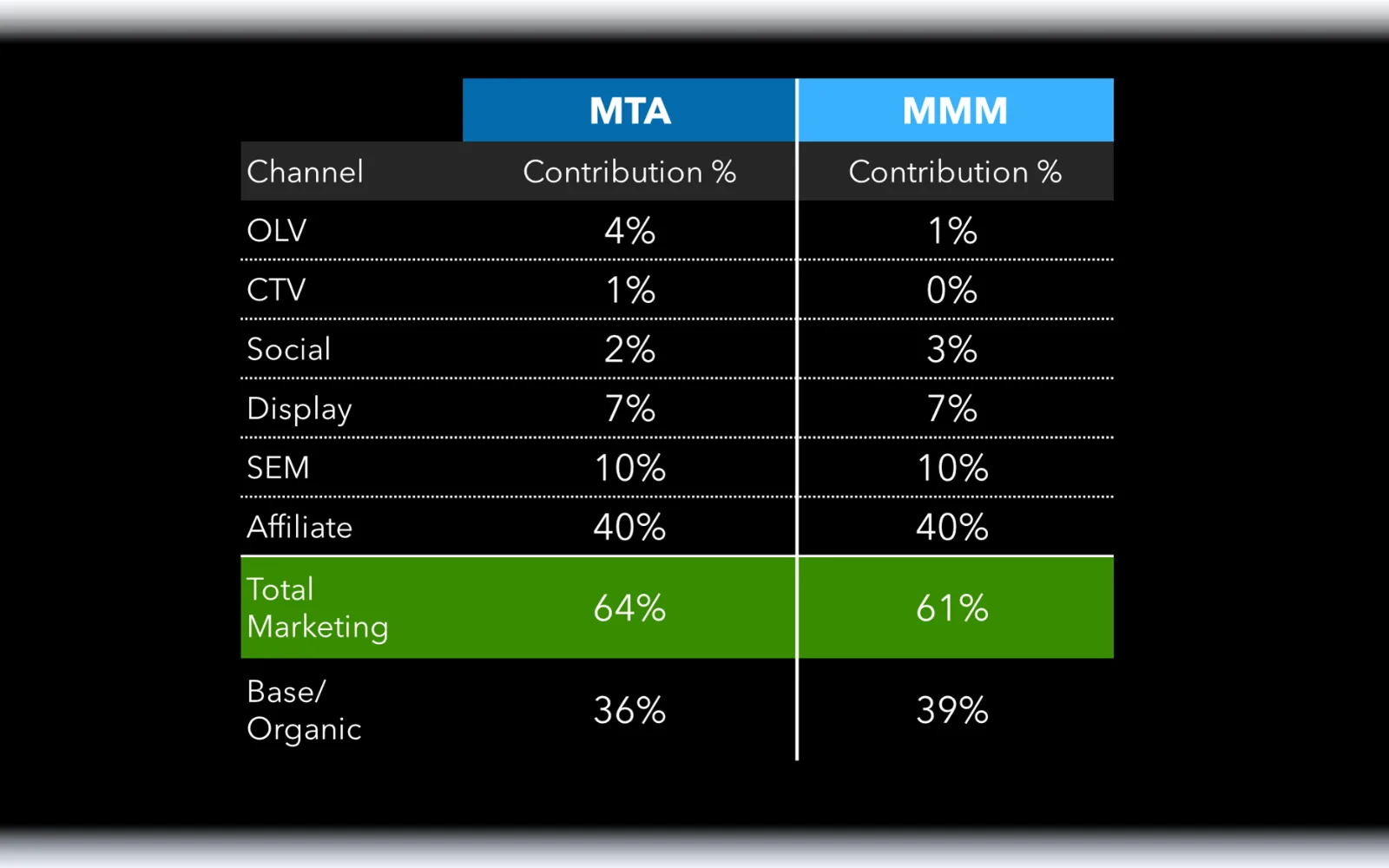Marketing effectiveness case study
Embedded support transforms marketing analytics team
The challenge
How can a fast-moving, budget constrained team power increased marketing ROI?
A consumer internet security client faced a trifecta of lofty goals. Boost upper-funnel brand marketing, launch a new flagship product, and focus acquisition on higher value customers.
The team, led by multiple first-year executives, looked to Marketbridge for embedded analytics support.
The objective
Empower a nascent team to measure marketing effectiveness
The client sought expertise from Marketbridge in realizing a wide-ranging, ambitious agenda: wrangling disparate data, understanding effectiveness, testing to propel future growth, and storytelling with clarity
Part 1: Establish metrics-driven marketing investment
Design a quantitative feedback loop for marketing activity by introducing:
- Incrementality metrics for new upper funnel investments
- Early detection of success for all marketing tactics
- Macroeconomic controls for isolating the impact of marketing
Part 2: Support new team with analytical know-how
Enable early wins for the marketing analytics team by onboarding team members to:
- Methods for integrating disparate marketing and customer data sources prior to flexible reporting
- A measurable test-and-learn agenda for media planning and budgeting
- An evidence-based framework for prioritizing demand generation in conversations with the Board
The solution
An agile extension of the client's team
Given the variety of strategic priorities, Marketbridge served to augment the team’s analytical capacity. Our support to the team evolved into a series of business-critical workstreams, encompassing everything from data engineering within client systems to preparing slides for Board of Directors meetings.
Part 1: Develop a scalable marketing and customer data asset
We quickly resolved disparate data sources containing marketing spend, website activity, and sales.
The result was a single, scalable Longitudinal Human Record (LHR), which became the foundation for powerful new insights.
(A) Integrated records
Processed clickstream records, vendor reports, and financial records into unified structure by conducting cross-system joins where possible
(B) Accessible codebase
Shared LHR assets with analytical talent on the client side, alongside documentation for future development
(C) Insights reporting
Exemplified executive dashboard reporting and data work for ad hoc analyses from LHR
Part 2: Build media attribution models
Marketbridge built econometric models to accurately assess media investments, advancing understanding beyond Last Touch attribution.
(A) Media Mix Model (MMM)
Econometrically modeled the impact of marketing stimuli on eventual sales after accounting for seasonality, promotion, and macroeconomic factors as controls, delivering cost-pers and channel response curves.
(B) Multi-Touch Attribution (MTA)
Identified customer pathways to purchase, estimating the impacts of unconfirmed touches (e.g. TV impressions) along the way.
(C) Media planning
Triangulated outputs across models and test results to drive strategic planning

Part 3: Embed measurement and testing expertise
We supported development of a testing agenda to distill signals into clear insights of strategic importance.
(A) Test design support
Assisted in matched market selection and budget power analysis for finalization of test design parameters, and conducted incrementality results analysis
(B) Dashboard of sales contributions
Consolidated MTA model results in a real-time dashboard for rapid insight delivery
(C) Storytelling for executives
Assisted writing of executive-facing media investment narrative ahead of Board of Directors meetings
Business impact
Attribution modeling and testing uncovered investment value of upper funnel channels in winning new customers
We enriched our client’s understanding of channel interactions and customer segments through a set of fresh analytical methods for evaluating marketing effectiveness, ultimately guiding our client in how to best invest their marketing spend in a new era of growth.
Budget adjustments
With positive results from deliberate tests of newly incorporated upper-funnel marketing initiatives, the client continued to re-balance their media mix away from duplicative demand-capture channels and towards brand-building and demand generation.
Attribution models reinforced this budget shift, and incrementality tests highlighted the waning effectiveness of price promotions and affiliate marketing tactics.
Clarified view of acquisition
The newly developed customer data asset powered advancements in segmentation. This translated to a key insight: demand-capture marketing generated mostly low-value, high-churn acquisitions.
Operationalizing a new segmentation, the team was able to measure, test, and scale brand-building tactics against this cleaned segment, raising acquisition efficiency.